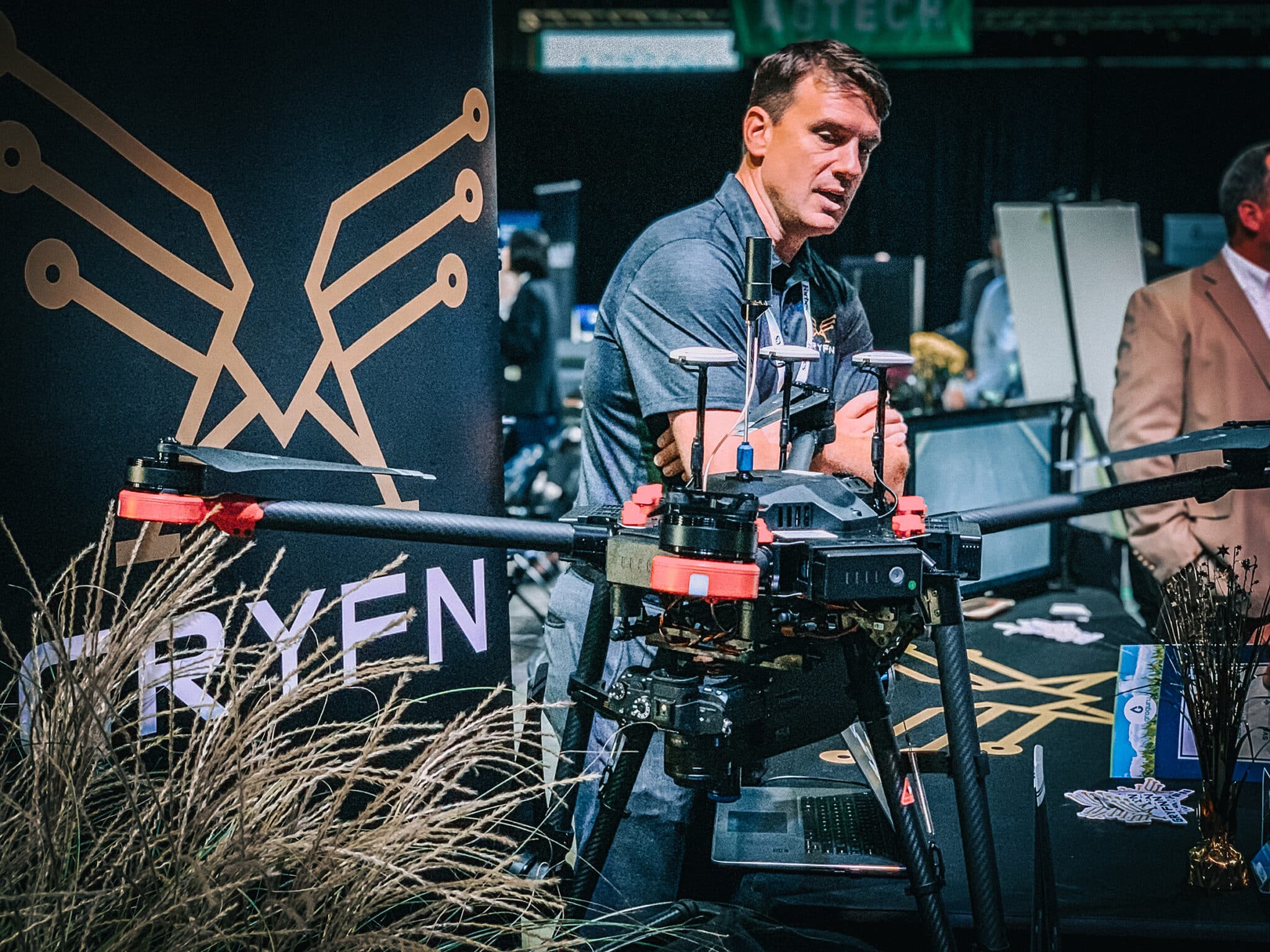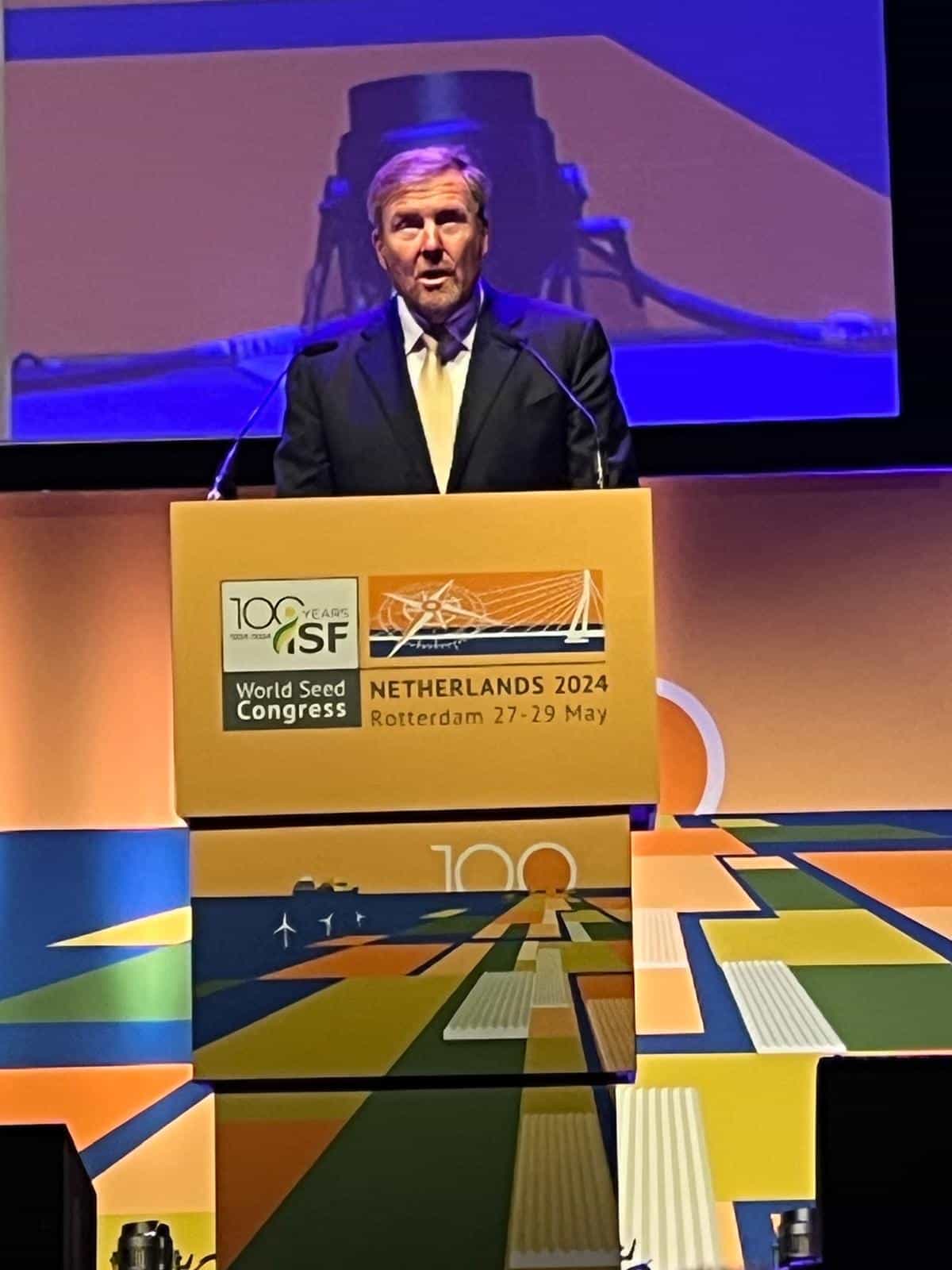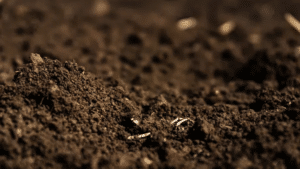A Purdue University-affiliated agbioscience startup is creating technology to help meet the growing global demand for bioenergy and, in partnership with Purdue, has received new support from the U.S. government.
GRYFN offers precise geomatics solutions for coaligned and repeatable multi-sensor drone data collection. The approach enables breeders to scale research operations and empowers them with precise, repeatable analytic solutions for high throughput phenotyping in the field.
“Data collection in plant breeding is a labor-intensive and slow process, and measurements can be highly subjective,” says Matt Bechdol, an alumnus of Purdue’s College of Agriculture who serves as CEO at GRYFN. “Data quality expectations are high, and we are working to offer relatively easy-to-use flying laboratories. We believe our system helps make field data collection faster, more automated and consistent, and will be collaborating with leading commercial crop breeding partners to validate this value.”
The startup, which presented its technology in September at the Forbes AgTech Summit in Indianapolis, is partnering with Purdue on a $4.5 million grant from the Advanced Research Projects Agency-Energy (ARPA-E), a division of the U.S. Department of Energy. Eight Purdue professors founded GRYFN with backgrounds in aeronautic technology, biology, plant sciences, agricultural and biological engineering, civil engineering, and electrical and computer engineering.
The technology was originally developed under the Transportation Energy Resources from Renewable Agriculture (TERRA) program, through a $6.6 million ARPA-E grant awarded in 2015.
GRYFN is using the technology, developed at Purdue and licensed through the Purdue Research Foundation Office of Technology Commercialization, to help in the rapid genetic improvement and production of sorghum crops for biofuel.
The team at Purdue started developing the technology as part of the university’s push for world-changing research in plant sciences to create innovative approaches to the growing demand for food, fuel and fiber. Purdue’s strategic investment in plant sciences and the entrepreneurial ecosystem helped secure the first TERRA grant and performance justified a second ARPA-E investment in continued research and technology to market efforts.
“High throughput phenomics is our go-to-market focus, but much like our multidisciplinary history, our solution provides value far beyond agriculture alone,” Bechdol says.
The GRYFN team is working to develop the patented geomatics technology for other uses where the advanced sensor systems could provide sustainable and cost-effective options.
“We are creating easy-to-use systems that combine sensors, advanced processing, artificial intelligence and drones to produce consistent, quality data for predictive and decision-making tools,” Bechdol says.” This innovation has natural resource, infrastructure, and even archeological survey applications.”
GRYFN also is one of the companies chosen by the Purdue Foundry for its first cohort of the Double Down Experiment (DDX), which includes nine businesses ready for scalable growth with technologies designed to advance the world.













